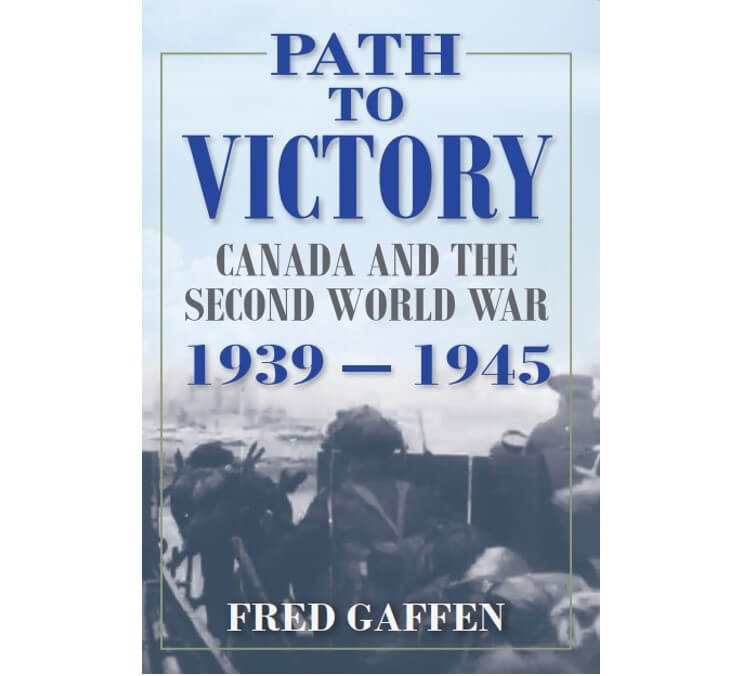
Military historian and author Fred Gaffen has summarized Canada’s role in WW II in his latest book Path To Victory. [Burnstown Publishing House]
Military historian and author Fred Gaffen is the first to admit that there are “so many books written about the Second World War, many of them by Canadians.” Nevertheless, he argues, a proportion might appear to be a “bit too formidable,” perhaps especially for those who want the facts without academic rabbit holes.
Gaffen cites his grandchildren and new Canadians interested in history as two motivators for writing his recent book, Path to Victory: Canada and the Second World War 1939 – 1945, released in August 2025 by Burnstown Publishing House.
Charting Canada’s efforts amid the most consequential conflict of all time, the book strikes a fitting balance between the well-known and overlooked aspects of those tumultuous years, interspersed with numerous memorable anecdotes that shed light on the people involved as much as the campaigns they fought.
Gaffen spoke to Legion Magazine about writing the story in a single volume.
On why he wrote the book
The Second World War is such a significant part of Canadian history, and right now, I don’t think we really appreciate what happened and the sacrifices made. Thus, I wanted to provide at least a general knowledge of the facts and figures.
A lot of people these days just don’t want to plot through a long book. With that in mind, I tried to ensure mine was very readable, broken into different sections that are as simple as possible and that people can dip in and out of as they want.
No, I didn’t include every little battle, nor every last detail or casualty list of the battles I did feature, because that can sometimes, frankly, get a bit tedious. I just tried to get the large, important parts, at least as a framework for further reading.
On highlighting Canada’s wartime contribution
One of the quotes I include at the beginning of the book is from a Second World War veteran. The statement reads: “We often had to endure. So, we endured.” It was as simple as that. It wasn’t a pleasant time. It was hard. And yet they did it.
Soldiers didn’t know when they were going to get killed. Their families didn’t know if their loved ones would ever return—or maybe return forever changed. These people had lived through the Depression only to then face a major war. This is why those individuals are still recognized as the “greatest generation.”
Canadians endured so much—and were determined to succeed. They responded strongly, remarkably, to the challenge. We’re now, of course, facing other crises, and I believe we’d do well to look back and draw strength from that generation.
On the importance of Canada’s home front
When we look back at our parents, our grandparents, our great-grandparents and even our great-great-grandparents and what they managed to accomplish [on the home front], you see that they truly transformed a small agricultural nation into a heavyweight mass-producer of arms, tanks, vehicles, ships, aircraft and more.
Women are drawn into the workforce while the men fight overseas. They take over farms, producing food that played a crucial role in keeping Britain afloat. That incredibly vital contribution should be recognized as much as the battles.
On his hopes for readers
I just hope people can learn the basics [of the Second World War] and appreciate the sacrifices that people, both at home and overseas, made for us. I also hope it inspires, reinforcing our desire to keep our country independent and democratic.
This abridged interview has been edited for brevity and clarity.
Advertisement






















